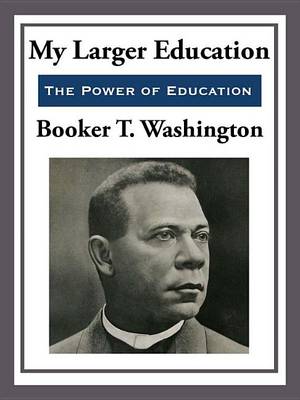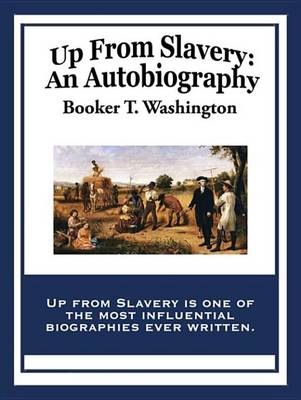Dover Thrift Editions
2 total works
In My Larger Education, Booker T. Washington explains how he came by his positions on race relations, by describing the people who influenced him during the founding of Tuskegee Normal and Industrial Institute of Alabama. Washington was constantly, and often bitterly, criticized by his contemporaries for being too conciliatory to whites and not concerned enough about civil rights. It would not be until after his death that the world would find out that he had indeed worked a great deal for civil rights anonymously behind the scenes.
`My life had its beginning in the midst of the most miserable, desolate, and discouraging surroundings.' For half a century from its publication in 1901 Up from Slavery was the best known book written by an African American. The life of ex-slave Booker T Washington embodied the legendary rise of the American self-made man, and his autobiography gave prominence for the first time to the voice of a group which had to pull itself up from extreme adversity. Washington attributes his success to his belief in many of the virtues celebrated by Benjamin Franklin: selflessness, industry, pragmatism, and optimism. But from behind the mask of the humble, plainspoken schoolmaster come hints that reveal Washington the ambitious and tough-minded analyst of power who had to balance the demands of blacks with the constraints imposed on him by whites. To read Up from Slavery is to explore the means by which Washington rose to become the most influential and powerful black American of his time. How far he compromised African American rights in order to achieve his aims remains a matter of controversy. This book is intended for students of African American studies.

